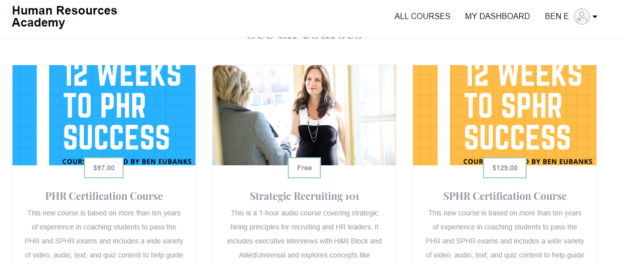Making HR better. One HR pro at a time.
-

Should We Be Asking for Pay History Data on Job Applications?
In many states, it’s still legal to ask about candidate pay history. While some states have outlawed this practice, I still get questions like the one below fairly regularly: I have a question for you that I thought you would be uniquely able to provide advice for. I am currently seeking new employment. When submit…
-
We’re Only Human 42: How to Prioritize Learning in the Business
Is learning a priority for your business? It better be. Research shows that learning, development, and growth opportunities are some of the most highly prized components of the employment relationship, and this is even more important when you have an influx of younger workers as the workplace has seen in recent years. In today’s conversation,…
-

Diversity Analytics: You Need Macro Numbers to Improve Results
This week I am in Atlanta for the SHRM Diversity Conference. I had the opportunity to speak on bias, HR technology, and how AI might be able to help us avoid some of our biased tendencies (if we can keep the bias out of the systems themselves). It was a great session because the audience…
-
Why Should HR Managers Know About VPNs
Data Safety Challenges Of A Company If you are working as an HR manager in a small company, you are likely to occasionally assume a few other roles less related to your qualifications. In particular, as the person chosen to carry face-to-face interaction with employees prior to their job commencement, you might be in the…
-

Announcement: New HR Certification Materials are Live!
I had a powerful moment last week. I went back and checked some of the statistics on the website for how people find the blog, and there have been tens of thousands of HR pros that found upstartHR via Google because they were looking for help with HR certification content. That truly blew me away!…
-

We’re Only Human 41: HR Leaders, Stop Treating the Symptom
“HR should see themselves as the sole source of people exertise in any organization… You don’t go to IT to get ideas on how to formulate product. You go to them for [technical] expertise.” How many times do you solve a problem only to have it come back around again? Are you treating the symptom…
-

Should Employees be Paid for Commuting Time?
An interesting piece of research on publicly available WiFi access in England led to a question that made me pause. Should employees be paid for commuting time? As someone that travels a fair bit for work, I know the value of being able to connect and work from any number of strange locations–restaurants, hotel lobbies,…
Looking for my books or other work?